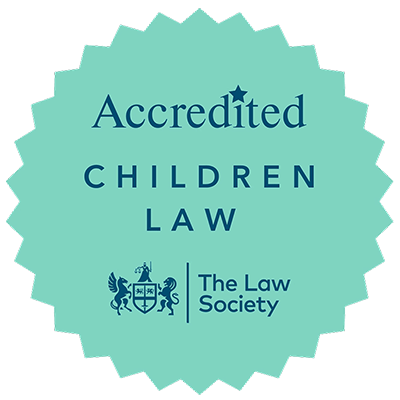Supporting clients through Child Arrangement Orders
A child arrangement order is the new term for what was formerly known as Residence and Contact Orders. The family court can help decide on which parent the child will live with or if they are to be spending equal time with both parties where parents have failed to reach an agreement outside of the court arena.
Who can apply for a child arrangement order?
How can Berris Law help me and my child?
Having a solicitor by your side from the start of a Child Arrangement Order case gives you the best chance of a positive outcome. Get in touch with the Berris Law today on 020 3601 505 if you wish to apply for, or are facing, a Child Arrangement Order.
Require us out of hours please either telephone us on 020 3325 7415 or email us on info@berrislaw.co.uk or complete the online form.



Let's Chat, It's Free
We know that no two cases are ever the same and we are dedicated to guiding you through the legal process with tailored solutions which work for you.
Fill out the form to request your consultation today, this will be an initial meeting to see how we can help and get to know each other, with no obligation.
The office is open from 9 am to 5.30 pm Mondays to Fridays excluding bank holidays. In the event your call is urgent and require us out of hours please either telephone us on 020 3325 7415 or email us on info@berrislaw.co.uk or complete the online form.
All are monitored 24/7.
frequently
Asked Questions
What is the difference between legal custody and physical custody?
Legal custody refers to a parent’s authority as the principal decisionmaker during their child’s upbringing, such as those involving education, healthcare, and religion, while physical custody determines where the child resides and who is responsible for their daily care, supervision, and well-being.
Legal custody can be joint, with both parents sharing decision-making rights, or sole, where only one parent has this authority; physical custody can also be joint or sole, depending on whether the child spends significant time with both parents or primarily lives with one, who is then considered the custodial parent.
In essence, legal custody is about decision-making power, and physical custody is about the child’s living arrangements and daily care.
How do UK courts decide who gets custody of the children?
UK courts decide who gets custody of children, referred to as “child arrangements”, by prioritising the best interests and welfare of the child above all else.
Judges rely on an all-encompassing approach, including each parent’s ability to provide a stable, nurturing environment, the child’s physical, emotional, and educational needs, and the importance of maintaining relationships with both parents, siblings, and extended family.
The court will also assess the primary caregiver’s role, the strength of the parent-child bond, parental capability, and each parent’s willingness to support the child’s relationship with the other parent.
The wishes and feelings of the child may be taken into account, particularly if the child is mature enough to express a reasoned preference.
Evidence of domestic abuse, neglect, or any risk to the child’s safety is taken very seriously and can lead to restricted or supervised contact for the offending parent.
Ultimately, every case is judged individually, with the child’s welfare as the paramount concern.
How can I change an existing child custody agreement?
To change an existing child custody agreement (Child Arrangement Order), the first step is to try to reach an agreement with the other parent about the proposed changes, ideally through open discussion or mediation, which can help avoid the stress and cost of going to court.
If both parents agree, you can make the new arrangement legally binding by drafting a consent order and submitting it to the court for approval.
If you cannot agree, or if the changes are considerable, you must apply to the court to vary the order by completing the appropriate forms (such as a C100), providing evidence of a significant change in circumstances, and attending a hearing if required.
The court will only approve changes if they are in the best interests of the child.
What rights do fathers/mothers have in custody cases?
In UK custody cases, both mothers and fathers have equal rights in principle, as the law does not automatically favour one parent over the other.
Both parents usually retain parental responsibility, which gives them the legal rights and duties to make important decisions about their child’s upbringing, regardless of who the child lives with.
A mother automatically has parental responsibility from birth, while a father has it if he was married to the mother at the time of birth or is named on the birth certificate (for children born after 1 December 2003); unmarried fathers can also acquire parental responsibility through a formal agreement or court order.
Ultimately, arrangements are decided based on what is in the best interests of the child, not the gender or status of the parent.